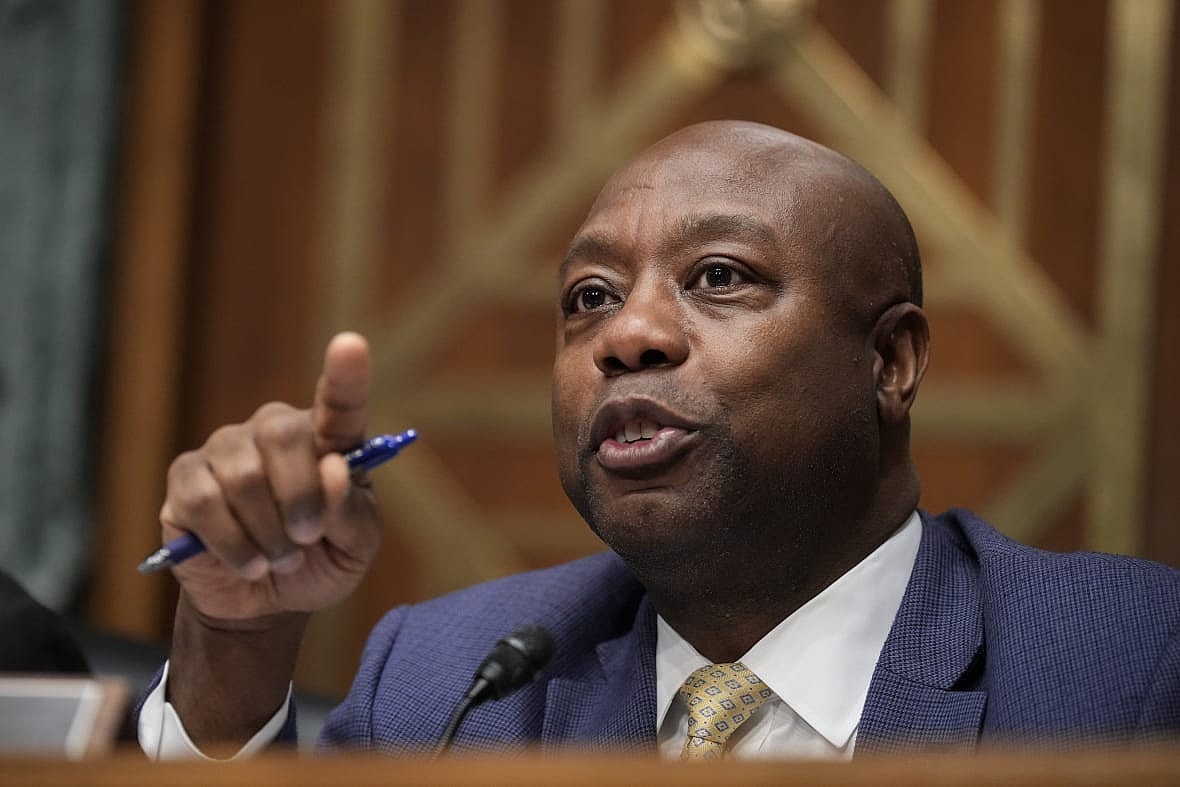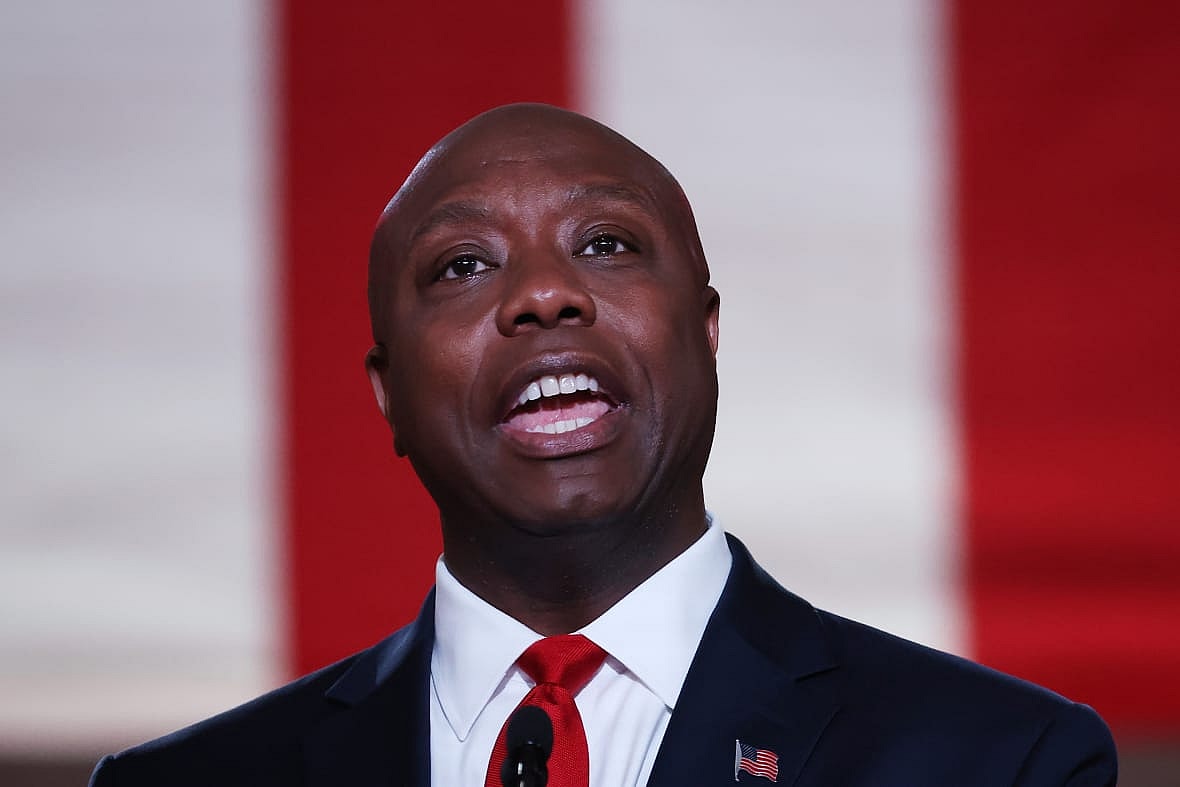A Black man is exploring a run for president of the United States in the upcoming 2024 election process. The Black community, however, is noticeably silent about the potential budding presidential candidate.
Various early polls of voters so far place U.S. Senator Tim Scott of South Carolina at the bottom of the growing list of current and potential Republican presidential candidates.

For Scott, getting the support of Black voters – a majority of whom do not align with his politics – would come with its challenges, according to some who have worked closely with the Republican senator.
For one, Senator Scott, while delivering the Republican rebuttal to President Joe Biden’s first joint address to Congress in 2021, infamously said, “America is not a racist country.” However, data shows Black Americans remain concerned about racial discrimination, and the FBI reported an increase in hate crimes in recent years.
Scott also single-handedly killed any chance of Capitol Hill lawmakers passing the George Floyd Justice in Policing Act in both the 117th and 118th sessions of Congress. The bill contained crucial federal police reform demanded by community activists and Black voters after the police murder of George Floyd in Minneapolis, Minnesota, and countless other police-involved killings of unarmed Black Americans.
Sources close to bipartisan discussions between Scott, the Senate’s lone Black Republican, Democrats Senator Cory Booker and then-U.S. Rep. Karen Bass, D-Calif., said Scott was the holdout on behalf of Republicans. One described his involvement in enacting legislation to hold police accountable as “disingenuous.”

Tara Setmayer, conservative TV commentator and senior advisor to The Lincoln Project, told theGrio she believes Scott is comfortable with his comments on race and blocking the Floyd bill because of what it signals to white voters.
“Let him take that message in front of the NAACP or the [National] Urban League or to African Americans who experience racism,” said Setmayer. She added, “I don’t understand how Scott is not self-aware.”
Scott previously shared that police racially profiled him. That commonality with many Black Americans, particularly Black men, signaled hope that he, Booker and Bass, would achieve meaningful bipartisan police reform.
Bass, now mayor of Los Angeles, told theGrio, “I think what we suspected of Tim Scott has now come to fruition.”
The former California congresswoman said Scott’s profile had “blown up” at the time of negotiations. She hinted that politics and an eye for higher office may have got in the way of making any headway.
“There was presidential talk or vice presidential talk … I do not believe that Senator Booker could look to Tim Scott to be an ally in the Senate,” lamented Bass, who predicted Scott could declare his run for president “in the next few months.”

Political commentator Armstrong Williams, a Black Republican, takes a moderate position on the issue of policing in America. “We must take a strong stance on law enforcement, but we also must hold the blue accountable when they’re out of line,” he told theGrio. “People need to see both.”
Bass believes the window for police reform is over in Congress, at least for now. She said Republicans view it as a “Black issue” and pointed out that Democrats no longer have majority control in the U.S. House of Representatives.
A major sticking point in the Floyd bill was legislation to lower the standard of qualified immunity, which legally protects law enforcement from civil cases. Last month, Democratic U.S. Rep. Ayanna Pressley of Massachusetts introduced a bill to end qualified immunity. At a press conference on Capitol Hill, Pressley said it was “rooted in our country’s legacy of slavery and racial terror.”
“In any other job in America, there are standards of conduct and consequences for failing to meet them,” the congresswoman argued. “Doctors can be sued for malpractice, lawyers can be sued for negligence, and policing should be no exceptions.
She continued, “If people are truly serious about the racial reckoning they continue to reference, this is how we get at that.”
TheGrio is FREE on your TV via Apple TV, Amazon Fire, Roku and Android TV. Also, please download theGrio mobile apps today!

